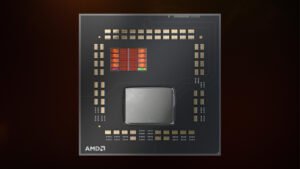
The AMD Ryzen 7 5800X3D is an impressive gaming CPU that, despite its non-overclocking design, has shown decent overclocking capabilities on select motherboards. We have already shown you MSI’s MEG X570 GODLIKE, which overclocks the chip up to 4.85 GHz, but it’s similar to TSAIK, if MSI’s very own internal overclocker has broken the 5 GHz barrier with the same CPU.
AMD Ryzen 7 5800X3D CPU achieves a 5.15 GHz overclock with 1.2V on MSI’s MEG X570 GOOD motherboard
TSAIK used the same MSI MEG X570 GODLIKE motherboard and pushed the reference clocks to 113.01 MHz along with a 45.5x multiplier. This boosted the AMD Ryzen 7 5800X3D to a clock frequency of 5.141 GHz. The interesting thing is that a voltage supply of only 1.2V was needed to reach this impressive speed. The full validation can be seen here.

This demonstration shows the impressive overclocking features on MSI’s top X570 card, ME GODLIKE. For those wondering which BIOS this was running on, it was the same 1.G5T2 BIOS (AGESA 1.2.0.6 Patch C) as the previous overclock. However, it seems that there is a special overclocking BIOS that has been kept hidden by AMD, although we hear that this BIOS is expected to be released by some card manufacturers very soon. Whether this BIOS releases forced locks that AMD has imposed on overclocking is another question, and just to be safe, overclocking the Ryzen 7 5800X3D will void its warranty since the CPU. I think the BIOS will come in handy for overclockers who want to break some records with the chip.

As to whether this overclock was stable or not, we are told that AMD Ryzen 7 5800X3D with 5.15 GHz OC was only booted up in CPU-z and no benchmarks were run. However, we expect to get overclocked gaming benchmarks for the chip soon.
So far, the response to AMD’s first 3D V-Cache chip has been very positive by the technology community, and some have even gone so far as to call it the fastest gaming CPU. This bodes well for the future of 3D V-Cache technology and its integration on future Ryzen CPUs, such as those based on Zen 4 core architecture.
